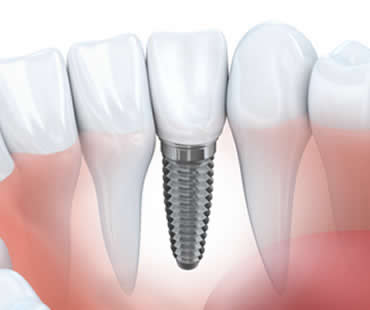It’s more common that you might think for adults to lose one or more teeth due to injury or oral diseases. Missing teeth can make chewing and speaking difficult, not to mention lowering a person’s self esteem. That’s why it’s smart to ask your dentist about tooth replacement options, to see if one of them might be right for you.
Dental implants
When artificial tooth roots are inserted into your jaw to replace lost teeth, it’s called dental implants. It involves surgically placing a metal post into the bone under your gums. Then a crown is attached to the post, creating a natural-looking replacement tooth. Dental implants do not affect adjacent teeth, and they look and feel like natural teeth. They are also more secure than other tooth replacement options. However, to be considered for dental implants, you must be healthy overall, have a secure and strong jawbone, and have healthy gums.
Dental bridges
Also called a fixed partial denture, the purpose of a dental bridge is to “bridge” or close the gap between your missing tooth or teeth and your surrounding teeth. Your dentist bonds the bridge onto the teeth adjacent to your gap. This is called a fixed bridge. There are also removable bridges, which you are able to remove, clean, and replace yourself. Another type of dental bridge is called an implant bridge, which attaches to a dental implant. The various types of dental bridge are made from materials like gold, alloys, and porcelain.
Dentures
When you need a tooth replacement option for all or most of your teeth, dentures may be the best choice. Complete dentures are used when you have no teeth left, or the remaining teeth must be removed. These cover both your upper and lower gums. Overdentures are removable and may be used if you have some natural teeth remaining, or have dental implants. These are only an option if your remaining teeth or implants can provide enough support for the overdentures.
We treat patients from Weymouth and the surrounding area









